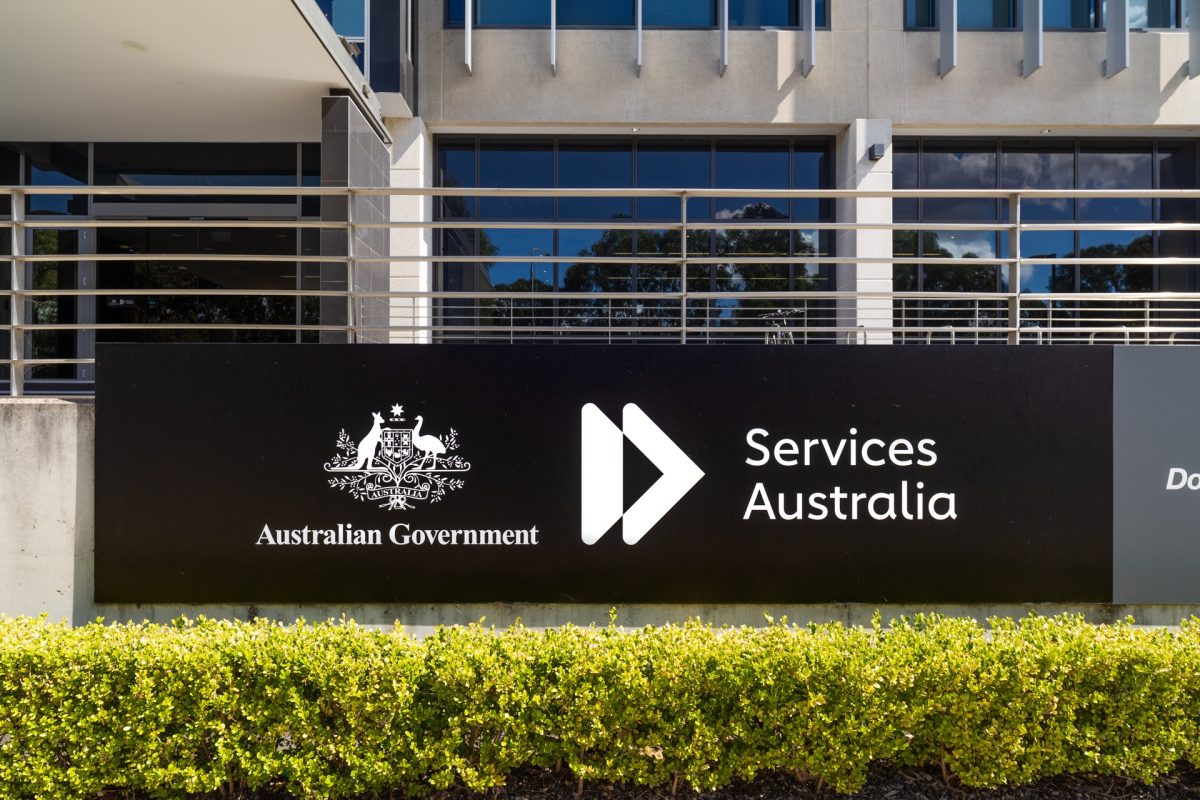
Some Services Australia staff are taking protected industrial action. Photo: Michelle Kroll.
Services Australia staff who are Community and Public Sector Union (CPSU) members will start strategic protected industrial action from Tuesday 1 August after the government failed to agree to pay and pay equity demands.
The move comes after a torrid few months for the agency in the wake of the Robodebt Royal Commission and its ramifications, and a move to shed some 1800 of its 7000 staff in the coming year as its staffing returns to pre-pandemic levels.
Services Australia and other Australian Public Service (APS) departments are looking to shore up their working conditions to match the cost of living.
The CPSU says it has wins for APS employees on conditions such as working from home, but says it wants the government to increase pay as part of the APS-wide agreement bargaining process. The CPSU’s demands follow the rejection of an ambitious 20 per cent pay rise over three years plus cost-of-living adjustments by Finance and Public Service Minister Katy Gallagher in March.
“The Albanese Labor Government was elected on a platform of getting wages moving but pay proposals to date are falling short of this commitment,” CPSU National Secretary Melissa Donnelly said.
“We’ve been consulting our members across the APS extensively and there is consensus that the APSC and the Federal Government can and should do better on pay.
“Our members are adamant that they will not settle for the current unambitious pay proposals. As a result, CPSU members in Services Australia will be exercising their right to take protected industrial action this week, with support from their colleagues across the APS.”
While the initial actions taken by Service Australia’s union members may seem minor, they have the potential to escalate. In what’s called an ‘auxiliary code ban’, staff in Services Australia will not enter prescribed codes that allow management to track the tasks individual employees are performing at any given time. The union says this action will not affect the agency’s levels of customer service, but says it will “wreak havoc” on staff monitoring.
“This first action should make it clear to government that our union and our members are serious about securing a fair outcome on pay and they will do what is necessary to achieve that,” Ms Donnelly said.
“Banning the use of Auxiliary Codes for two weeks will significantly disrupt internal monitoring and data collection, and fly in the face of the toxic micro-management culture that exists in Services Australia.”
The action follows an appeal to all Services Australia staff by CEO Rebecca Skinner in July to stick to their principles and tackle any challenges as the agency seeks to rebuild itself and trust in it by the public.
“Now, more than ever, we need to ask ourselves if what we are doing is simple, helpful, respectful and transparent,” Ms Skinner said in a 13 July email.
“Robodebt is one of the most challenging issues we’ve faced,” she added. “I acknowledge the hurt it caused customers and our own staff. I’m aware the report may cause further distress for many of you…
“I know that you take great pride in serving Australia and making a difference in the community for those who need our support.”
Original Article published by Andrew McLaughlin on Riotact.











